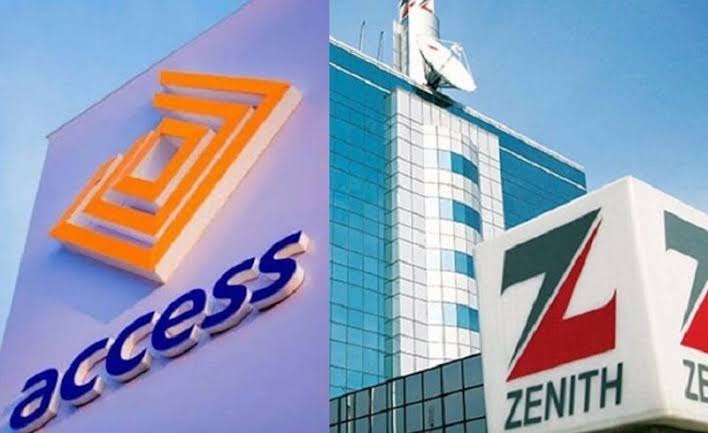
Mathew Amaechi
A new report by Proshare has revealed that only two Tier 1 banks, Zenith Bank and Access Holdings Plc, have successfully met the Central Bank of Nigeria’s (CBN) N500 billion share capital and share premium threshold for banks with international licenses. The report, titled ‘Tier 1 Banks Report: Getting Bigger, Braver, and Dominant – The Class of 2025’, casts a spotlight on the readiness of Nigerian banks for the ongoing recapitalization exercise.
According to the report, Zenith Bank leads the pack with a robust share capital and share premium of N614.65 billion, closely followed by AccessCorp at N594.90 billion. This places them significantly ahead of other major players in the Tier 1 category. Ecobank Transnational Incorporated (ETI) and Guaranty Trust Holding Company (GTCO), for instance, are trailing with N353.51 billion and N345.30 billion respectively, indicating a considerable gap to bridge before the March 2026 deadline.
The report highlights that all Tier 1 banks are mandated for international operations, but notes a strategic move by some highest-ranked Tier 2 banks (borderline banks) to also aim for the N500 billion share capital. This proactive approach aims to enhance their competitive edge in the evolving global and continental banking markets.
Interestingly, the banking hierarchy is experiencing a shift in dynamics. ETI has dislodged Zenith Bank from the top of the Tier 1 ladder, a feat attributed largely to its impressive 67.11 percent asset growth, primarily driven by its operations in francophone West Africa.
Despite a recent N225 billion Supreme Court judgement liability linked to its legacy acquisition of FSB International Bank, Fidelity Bank is projected to regain its Tier 1 classification by the end of the 2025 financial year. The report suggests that Fidelity Bank can maintain adequate liquidity through strategic management of the judgement’s impact.
Proshare analysts also delved into the broader implications of the recapitalisation drive, emphasizing its occurrence in an era of shifting customer expectations and banking trends. “The contemporary era is hinged on a shift in the needs of bank customers. It is more aligned with the transactional needs of customers for bespoke services,” the report stated.
While asset size has traditionally been the benchmark for ranking banks, the report points out that asset growth is gaining equal significance in measuring market dynamics. By asset growth, the top five banks include ETI (67.11 percent), Wema Bank (59.82 percent), FCMB (59.46 percent), FirstHoldco (56.60 percent), and AccessCorp (55.49 percent).
However, the report did flag concerns regarding non-performing loans and the suboptimal use of balance sheet leverage within the Nigerian banking sector. It noted that “while off-balance sheet transactions have grown exponentially globally, this type of banking operation remains relatively underutilised in Nigeria.”
Despite potential short-term pressures on return on equity and capital employed, the long-term outlook remains positive. The report anticipates that banks will enhance their capital adequacy ratios and risk management frameworks in response to the recapitalisation mandate.
Proshare concludes that the CBN’s recapitalisation timeline, ending in March 2026, remains realistic, with most banks demonstrating visible progress, although a few are reported to be lagging behind. The coming months will be crucial as Nigerian banks intensify efforts to meet the stringent capital requirements and solidify their positions in the competitive financial landscape
